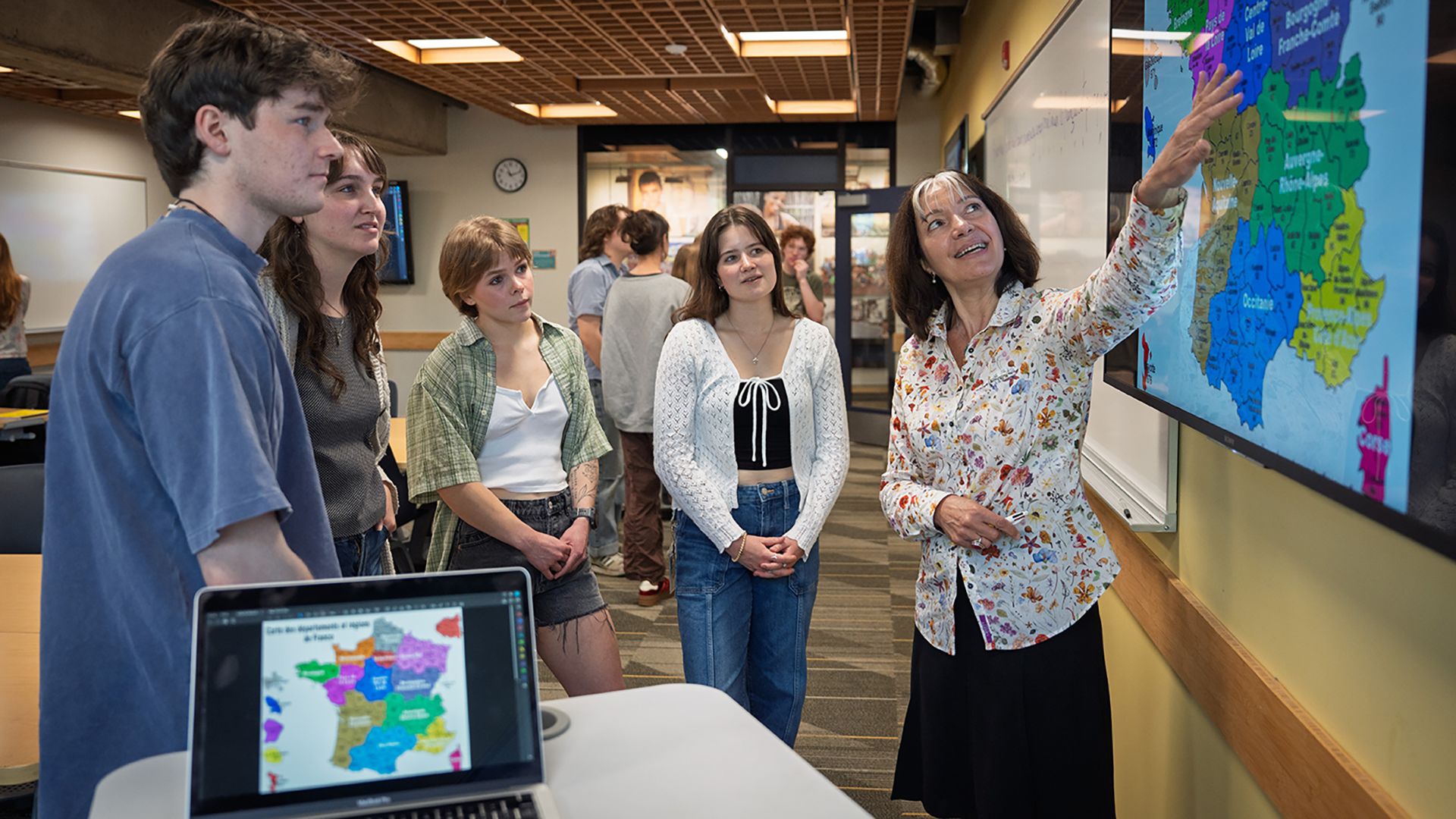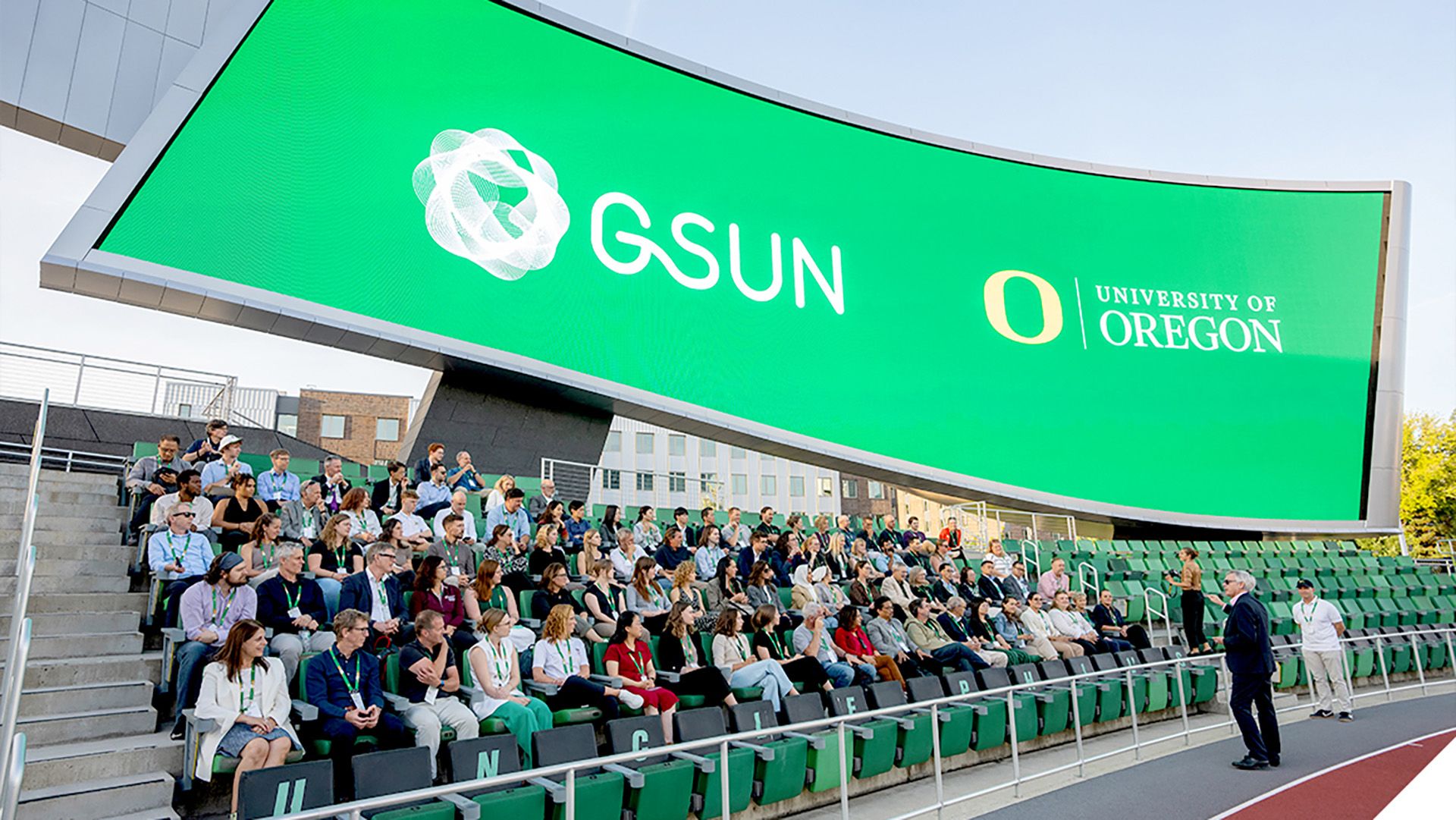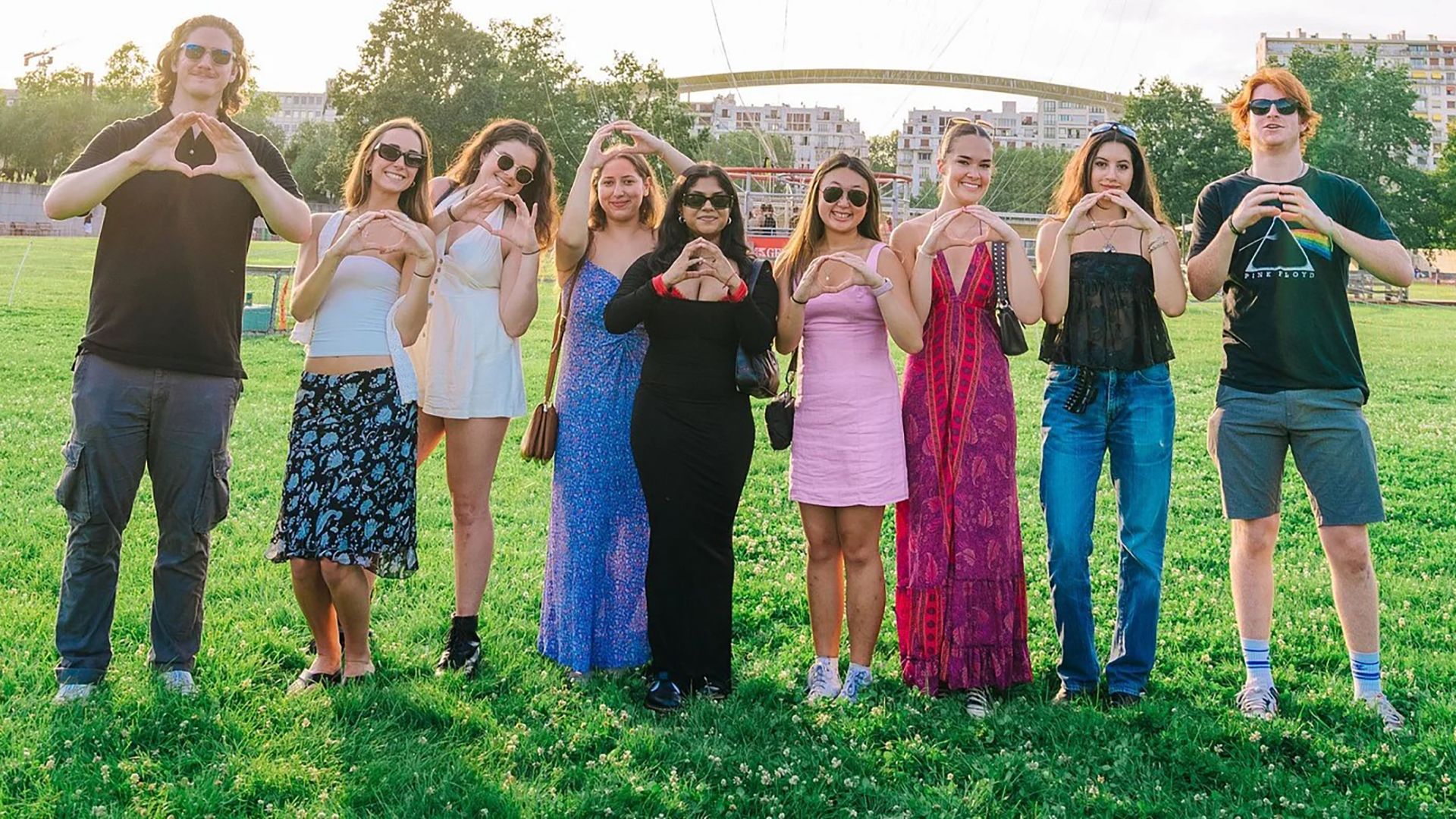AI, food insecurity and nanotechnology are among the topics being investigated through international partnerships
Story by Ed Dorsch
July 30, 2025
Four University of Oregon faculty members have received Fulbright U.S. Scholar Program awards for the 2025-26 academic year.
The awards, given by the U.S. Department of State and the Fulbright Foreign Scholarship Board, enable recipients to pursue research abroad and expand their professional networks, building international collaborations and laying the groundwork for future partnerships.
"It's a testament to the caliber of UO researchers that they are invited to do research internationally through the Fulbright program," said Anshuman "AR" Razdan, vice president for research and innovation.
"By studying food insecurity, investigating porous materials at the molecular level, and improving our understanding of the facets of AI, from desirous for the good of the society to the undesirable outcomes, our faculty are helping to find impactful solutions to the problems we face in daily life and advancing the creation of knowledge for the future."
Meet the UO's 2025 Fulbright scholars
Le Yang
Associate vice provost and university librarian for collections, discovery and digital Strategy
As a Fulbright Specialist in Taiwan, Yang will work with Taipei Medical University's library incorporating AI-enhanced search tools and large language models, AI systems that process and generate language.
Those tools will help students, researchers and faculty members access open digital repositories.
"By making multilingual information more accessible and useful, we can accelerate innovation and discovery," Yang said. "Better communication and collaboration that transcends geographical borders will also help society address pressing global challenges."
Artificial intelligence holds great promise for quickly and effectively searching digital repositories of information. An academic library leader and information science scholar, Yang works to advance AI tools for researchers, educators and the general public.
That includes managing vast data resources more creatively, enhancing user engagement and leveraging AI-powered accessibility.
Yang will gain insights on the latest trends, share best practices and enhance the professional knowledge and skills of librarians in medical and other libraries across Taiwan.
He also aims to collaborate with other experts, create new global partnerships and build a foundation for future projects that will help libraries serve as catalysts for innovation.
Specific efforts include expanding support for multilingual content and file formats commonly used in academics with open-source models, as well as scaling systems.
Ultimately, Yang hopes to move the needle for AI applications in library and information science, advancing those tools from merely facilitating data searches to discovering crucial content.
Carl Brozek
Assistant professor of chemistry and biochemistry
Brozek studies materials measured in nanometers. For perspective, a sheet of paper is 100,000 or so nanometers thick.
"At the nanoscale, the properties of materials, how they melt and freeze for instance, transform dramatically," Brozek said. "These tiny molecular structures offer big potential for medical and industrial applications."
For his Fulbright project, Brozek will join the Horike Lab at Japan's Kyoto University to explore liquid-state metal-organic frameworks, or MOFs.
These porous, human-made crystals have tremendous potential for capturing carbon dioxide and toxic chemicals, separating chemicals and harvesting water in dry environments.
Brozek's Fulbright project will be the first to explore the underlying mechanisms behind their unusual properties.
Metal-organic frameworks can contract rather than expand when heated, the opposite of most materials. Instead of transforming from a liquid to a gas, they can break into two separate liquids with different properties.
Building on years of successful collaboration between the Brozek and Horike labs, the project combines the expertise and equipment of both.
The Brozek Lab is a world leader in studying porous materials. At the Horike Lab, researchers lead the way in studying their melting behavior.
In the past, the two teams have conducted research and published their work in leading journals. Working together in person will accelerate their efforts to explore the fundamentals behind the unusual behavior of these innovative materials and boost industrial applications.
Bryce Newell
The David and Nancy Petrone Faculty Fellow, associate professor, School of Journalism and Communication
To improve our understanding of the regulation of AI and "deepfakes," with a focus on regulations protecting children, Newell will travel to Denmark. Hosted by the University of Copenhagen's Department of Communication, he'll conduct research, collaborate with faculty experts in information and data privacy, and build a foundation for future efforts.
AI tools are used to create videos, sound and images that are alarmingly realistic, Newell said. That synthetic media may be fake, but the harm they cause is real.
"Scholars and policymakers are grappling with how to regulate these emerging technologies," Newell said. "By falsely depicting people saying or doing things they never said or did, they pose serious risks."
Synthetic media include deepfake political videos and sexually explicit material used for cyberbullying and harassment.
To gather the raw materials for this synthetic content, generative AI applications harvest personal data from many different sources, including the open web.
The European Union is a global leader on AI and data protection laws, and regulators in Denmark have been addressing fabricated and manipulated media.
Drawing on his academic background and experience in law, technology and information science, Newell aims to publish at least two manuscripts, lead public talks and lay the groundwork for a book.
Ultimately he hopes to advance the effective, ethical regulation of powerful AI tools that, along with the risks they pose, offer tremendous potential for helping society.
David Meek
Associate professor, director of the Food Studies Program
Brazil faces an emerging health crisis due to food insecurity, an issue also linked to mental health problems.
"Turning to sustainable urban agriculture and community kitchens, Brazil's informal slums are advancing their own solutions," Meek said. "It's widely recognized that these promote food security, but little is known about their impact on well-being."
Drawing on his background as an environmental anthropologist, geographer and food systems scholar, Meek will use his Fulbright award to explore what's working in Brazil's favelas, dense and impoverished neighborhoods that are home to low-income residents. He will partner with the Federal Rural University of Rio de Janeiro and the Oswaldo Cruz Foundation.
Those impoverished urban neighborhoods are not formally regulated and lack resources. However, favela residents share strong cultural ties and active communities.
Meek will study grassroots approaches and civil society organizations in those marginalized areas.
By examining food systems with a focus on the physical, psychological and environmental well-being of individuals, he hopes to launch new areas of scholarly inquiry. So far, the impact of sustainable agriculture on those three areas has not been investigated.
Meek will conduct interviews, gather surveys and analyze satellite data to gain insights and break new scholarly ground.
In Brazil, he will share discoveries with nonprofits, give presentations, lead discussions and build partnerships. He hopes those connections will lead to new opportunities for UO students.
Back in the U.S., Meek will disseminate the results through professional meetings, scholarly journals and a website. He also will work with the city of Eugene and local organizations to apply his insights and promote new solutions for food insecurity.
Trace the UO's global footprint
Schnitzer gift powers a bold global vision for UO school
The $25 million investment names the Schnitzer School of Global Studies and Languages
Changing the world through sport
A global network co-founded by the University of Oregon hosts an inaugural international summit
UO sends students across the globe in record numbers
Study abroad celebrates record summer enrollment and new scholarships and programs









